"The thing about
The Who for me, and this is sad in a way, is the amount of control that I've had to have, keeping the creative process close to my chest, making sure the other guys in the band felt they were part of the process but they really weren't". (
Pete Townshend)
When did
The Who cease to be a collaborative creative unit? Did Townshend's talent begin to eclipse that of his buddies after the successes of both
Tommy and
Quadrophenia vindicated his ambition, or had the rot set in even before this? As much as I admit that shorn of the textural input of Daltrey, Entwistle and Moon, those power pop 60's anthems wouldn't have sounded remotely as thrilling but they would still be great songs regardless of the means of execution. The band's enduring association with Mod culture is always overstated, as even by 1966/67 Mod had effectively abandoned it's origins in beatnik coffee bars, modern jazz, bohemian art school lifestyles and existentialism for a supplanted psychedelic hippie zeitgeist that embraced intoxication over stimulation. These precedents are seldom echoed in any of
The Who's output. I've always suspected that the band's opportunistic managers Kit Lambert and
Chris Stamp adopted the Mod orphan to pitch their client's act to any youthful demographic with burgeoning spending power. Teenage rebellion has never been anything more than a marketing ploy. You don't hear the sound of Italian scooters in
The Who or the Kinks, (unless they're being advertised) but you do hear what amphetamines, R'n'B and working class urban modernism might resemble.
Over the years
Roger Daltrey has come to sound increasingly uncomfortable at inhabiting what are some very unflattering alter egos from the troubled Pete psyche. Townshend has therefore often had to provide material for two distinct appetites of his target audience i.e. the experimental and confessional material for his solo albums and the more accessible but simplistic rawk fare for the legions of archly conservative Who fans. (who, by 1980 included the singer, the bass player and the drummer alas)
By the time the band convened to record
Face Dances their individual orbits were at least on similar trajectories e.g. Jones, Entwistle and Townshend all had serious marital difficulties and were quaffing prodigious amounts of booze. To add lighter fluid to an already heavily combustible cocktail, Pete was also indulging in harder drugs (cocaine and heroin) Roger, by way of complete contrast, has always been strenuously 'clean' and was basking in the recent success of his role in the McVicar movie. (as the reformed armed robber now celebrated for his obtaining a degree in Sociology, like you need one to tell you stealing is wrong? go figure and gallery owners everywhere, give my regards to Jimmy Boyle's mutilated victims)
Pete's entire songbook is tantamount to the world's catchiest ever identity crisis. Teased and bullied mercilessly on account of his awkward adolescent gait and huge nose by playground sadists in childhood Acton, Townshend was inevitably a case book study in dealing with oppression and searching for belonging. He was a reluctant mod, a very unconvincing hippie, a meticulously unkempt punk and the oldest new romantic luvvie to ever frequent the Heroes and Embassy Clubs in
London. What's rather ironic is that Townshend at this time was completely besotted with the Clash as embodying his holy grail of a sexy and politicized rock band who wrote and played great rock'n'roll while confronting pressing social concerns. It is clearly Townshend and NOT Joe Strummer who would have been best equipped to bring this nascent vision to reality. The reasons being that Pete does not suffer from the romanticized nostalgia for a past that never occurred in the first place that so afflicted Strummer, and he is a pragmatist at heart, a realist who cannot hide behind political rhetoric or empty agit prop. Townshend was a hoi polloi who eventually rubbed padded shoulders with the indolent elite: Strummer was the public schoolboy son of a diplomat who posed around with proles and considered the troops who manned the barricades of Northern Ireland as representative of nothing more significant than a 'photo opportunity'
You Better You Bet - 'Just' a pop song but a cracker for all that and such is the confidence of the writing that it survives a rather speculative and unwittingly comedic Daltrey reading.
"I showed up late one night with a neon light for a visa But knowing I'm so eager to fight can't make letting me in any easier I know I been wearing crazy clothes and I look pretty crappy sometimes But my body feels so good and I still sing a razor line every time".
It seems clear that such dissolution expressed so unflinchingly in this song is completely alien to the singer.
Don't Let Go the Coat - Pete always cast a keen eye on the youthful competition throughout his long career and here we see his take on the contemporaneous 'jangle' indie pop phenomenon perhaps best epitomized by the LA's There She Goes. A beautiful and hauntingly powerful song that Roger pitches perfectly with just a hint of remorseful regret in his lower register.
"It's easy to be sad when you lack a partner But how would I react to a broken heart now? It ain't really true rock 'n' roll unless I'm Hanging onto you and when I hold it next time"
The rather unusual title was probably inspired by an oft repeated phrase sourced from Townshend's acknowledged spiritual guru Meher Baba:
and help us all to hold fast to Baba's daaman [hem of his coat] till the very end.
Cache Cache -
Consumed with a sudden wish to give up music forever and live as a tramp in Switzerland, Pete decided to seek out the brown bears that live in cages in the hills above the city of Berne armed only with a bottle of brandy, his wallet and passport for company, Mercifully he found none, but this very endearing and strange song resulted which if nothing else, testifies to the faintly disturbing impulses that can afflict those with unlimited resources and impunity. The author was discovered unconscious in one of the bear pits and subsequently flown to Austria to perform a concert with
The Who that evening. The cringe-worthy 'Spinal Tap' element to all this will not be lost on you I'm sure. Once again there is ample evidence that despite his excellent singing, Daltrey has very little clue about the motivation that prompted such spontaneous idiocy from Pete:
"I got used to behaving very badly. Once I was so completely out of my brain that I actually humiliated the band in public. We were playing at the
Rainbow in
London -- this was early '81 and I kept stopping songs and making speeches to the audience. I kept playing long, drawn-out guitar solos of distorted, bad notes. I'd alter the act, making up songs as I went along. And I knew it was
London, and I knew that everybody's friends and family were there, and I deliberately picked that day to f.u.c.k up the show. I just ceased to care. I threw my dignity away" (
Pete Townshend)
The Quiet One - Given that producer Bill Szymczyk (pronounced B.I.L.L) worked with the Eagles and was suggested by Pete's friend
Joe Walsh for this album, it is perhaps not that surprising to report that this Entwistle tune sounds like erm... a
Joe Walsh tune. John is on record stating that it was designed to replace
My Wife in
The Who's live set which he had grown tired of singing. I bet he wearied of this mediocre effort far quicker.
Did you Steal My Money? - We can forgive both the irony of this number being inspired by the Police (the band) and the very large debt it owes to the melodic seed of On Broadway. It's an unusual number for
The Who but it works surprisingly well thanks to Pete's accusatory backing vocal that sits in a very pleasing contrast to Roger's more placatory lead vocal. The developmental sections are sufficiently inspired to warrant an entirely fresh writing credit anyway. Quite possibly the only song lyric that conspires to rhyme 'brasso' with 'ass.h.o.l.e'. trivia fans. The demo version on Townshend's Scoop 3 is also well worth hearing. As to the the shady events that inspired this tale, Pete merely states:
"The true story behind this doesn't make anyone look good -- especially me. It is not the time to tell it".
How
Can You Do It Alone? - A weighty and brooding descending intro provides the camouflage for a lighter and tightly swung verse to emerge that depicts the shame of thwarted desires being uncovered for potentially unfavorable judgement. These run the gamut of flashing on the underground, stealing porn mags and erm, showering with your girlfriend? The short synth driven martial interlude is unexpected but delightful as it leads very satisfactorily back into a verse to fade ending where 'sprightly' and 'creepy' somehow lock flirtatious hands and traipse off down the street inextricably entwined. Why any of this works defies all conventional musical wisdom as the verses centre unequivocally on D major while the intro and bridge begin with a clashing and contrary D minor? File under 'exceptions that prove the rule'
Daily Records - A belter and one of my favourite Who tracks ever. Similarly to Did You Steal My Money? notice how Townshend uses the harmony backing vocals to refreshingly original effect i.e. their wordless gaucheness adds to the feeling of befuddled alienation expressed in the lyric:
"I look at baggy suits and leather capped with puke, I look at Richmond married couples denim look I watch my kids grow up and ridicule the bunch but When you are eleven
The Whole world's out to lunch"
Pete's skiffle past is betrayed by an exhilarating guitar break where his command of rapid banjo finger-picking technique is deployed on 6 string electric. Kenney Jones drumming is particularly good on this and it's a shame that his very invisibility makes him one of the few top drummers capable of seamlessly replacing Keith Moon while receiving scant credit or censure for same. A simple and salutary song about how the best intoxication and anti aging tonic to be had anywhere is that fueled by pure, uncut and undistilled music fresh from the source.
You - Another Entwistle original but it's driven by such a tight arsed little riff that must be one of the stingiest ever committed to tape post big bang. Things do perk up thereafter as we transition into a clanking pedal point groove under 'A' which if nothing else, is an exercise in how far you can take this standard issue rock device without resorting to quasi oriental inflected modulations a la Fancy, See My Friends, Tomorrow Never Knows etc. Wisely, John resists such temptation as he's in way over his head in that company. It ain't bad, but I've never yet felt compelled to reach for the 'repeat' button on its cessation. Faintly cack-handed misogyny to boot?
"You, your wasting my life, You can't lose what you've already lost Your arms are open but your legs are crossed"
Another Tricky Day - Almost self consciously nostalgic for a simpler and more naive past, with trademark windmill power-chords punctuating the Ox's effortless but always muscular anchor and Bundrick's playful jesting piano. Very strong ascending melody that reaches its memorable summit thus:
"(Just gotta get used to it) We all get it in the end (Just gotta get used to it) We go down and we come up again (Just gotta get used to it) You irritate me my friend (This is no social crisis) This is you having fun (No crisis) Getting burned by the sun (This is true) This is no social crisis Just another tricky day for you"
You can't help but feel there are those amongst us in positions of great privilege, wealth and cultural standing who suffer from both a slice of self-loathing and that strange jealously of ordinary people with ordinary everyday concerns? Regardless, like so much on
Face Dances, it succeeds because the writing is strong enough to withstand the lukewarm reception afforded by the band to Pete's original demos and the complete dearth of empathy from a singer who would have very little common ground with the hellish demi-monde inhabited by his songwriter
This just leaves the token doggie bag of tidbits that proliferate on reissued CDs these days. Word to the wise label execs everywhere: free s.h.i.t. is still overpriced.
Somebody Saved Me is an interesting draft that was given its definitive reading on Pete's brilliant solo album All the Best Cowboys have Chinese Eyes. Listening to this earlier version, it seems to inhabit harmonic territory similar to that retraced by
Lloyd Cole's Are You Ready to Be Heartbroken? a couple of years hence. I Like Nightmares is good fun but is ruined by Pete's transparently rat a.r.s.e.d. delivery with uncharacteristic dithering over whether he wanted it punchy New Wave or country parody. It's In You sounds like something even the Stones would have rejected from one of their uniformly wretched 80's albums. There are also bundled a couple of live versions of How
Can You Do It Alone? and The Quiet One which are decent but strictly for completists only.
Face Dances is an unjustly neglected album in my book as I consider it stronger than the more highly regarded
It's Hard that followed. Although not 'proggy' in any conventional sense, of some interest to PA visitors has to be Rabbit Bundrick's keyboards which in the absence of the usual swathes of Townshend guitar, provide much of the internal detail and flesh out the arrangements accordingly. He does this quite brilliantly and his playing is borderline ornate in places with a choice in sounds and textures exemplary throughout. Bundrick is the rabbit that Townshend pulled out of the hat. It also seems clear that by circa 1974
The Who only existed in any meaningful form solely to perform the music of
Pete Townshend. They ceased to be a 'real' interactive band long before then.
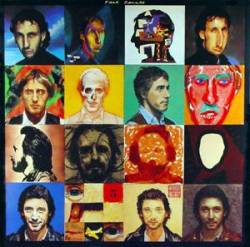
 The Who : Face Dances
The Who : Face Dances










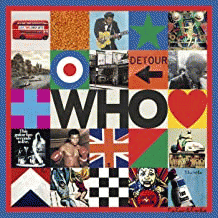
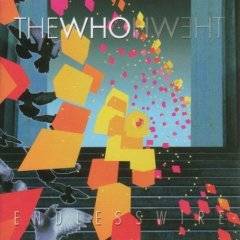
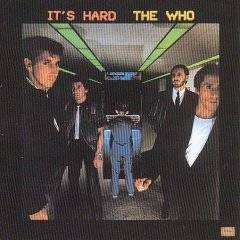

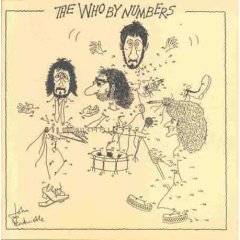
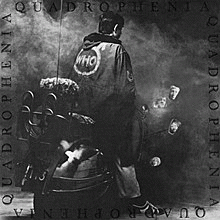
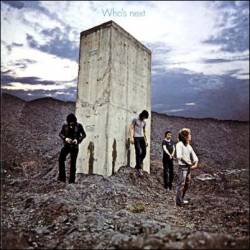
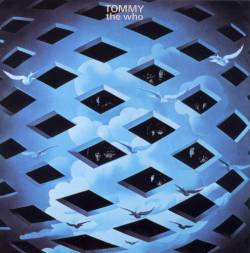
/The Who Sell Out.jpg)
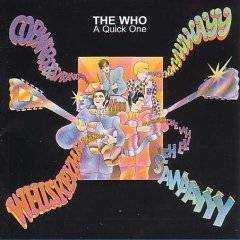
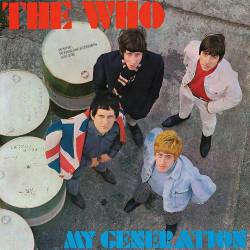
É necessário que estejas conectado/a para adicionares um comentário